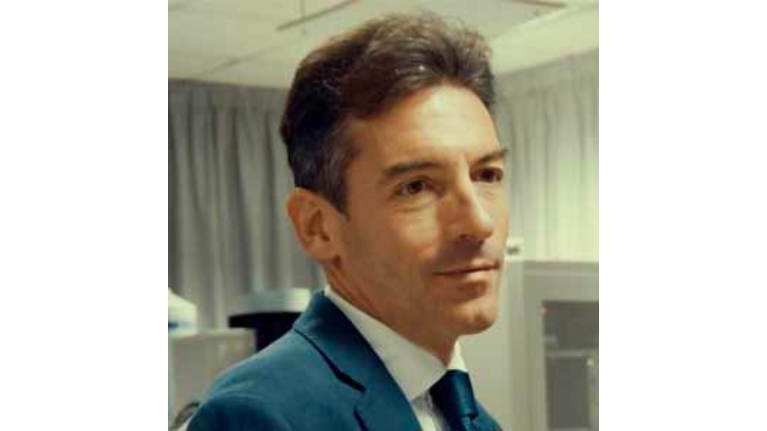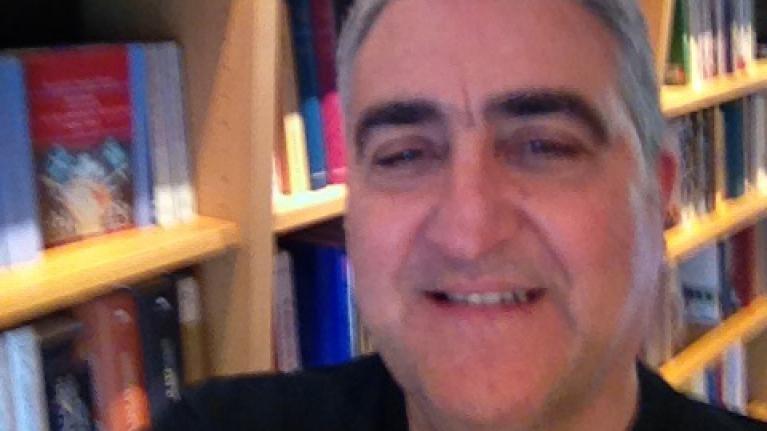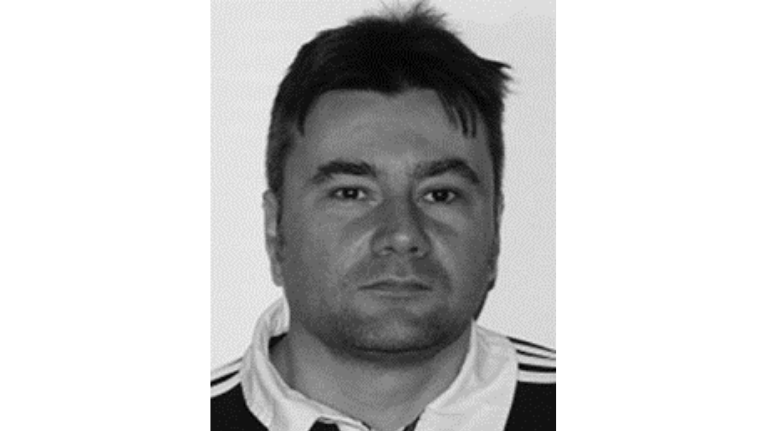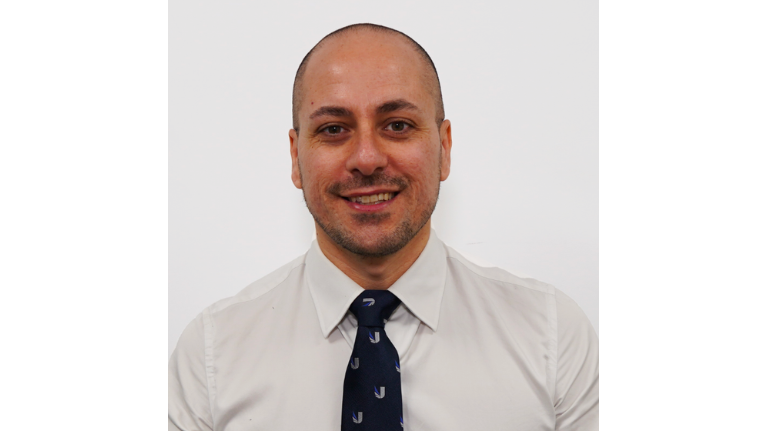EGU 2024 - Session GI6.8 | 1st Edition

About the event
Non-destructive Testing and Earth Observation Methods for Sustainability and Resilience of Infrastructure and Built Environments
European Geosciences Union General Assembly 2024 - session GI6.8.
- Programme will be announced in March 2024.
Where and when
This event has already taken place. This event took place at Vienna, Austria & Online on the following dates:
- Sunday 14 April 2024, 11am - Friday 19 April 2024, 7.30pm
Call for abstracts
The Session GI6.8 “Non-destructive Testing and Earth Observation Methods for Sustainability and Resilience of Infrastructure and Built Environments” primarily aims at disseminating contributions from state-of-the-art NDT and EO methods, promoting stand-alone technology and their integration for the development of new investigation/monitoring methods, applications, theoretical and numerical algorithms, and prototypes for sustainable and resilient infrastructure and built environments.
The Session GI6.8 is organised in the framework of the European Geosciences Union (EGU) General Assembly 2024.
How to submit
The deadline for submissions is 10 January 2024, 1pm CET.
You can learn more about submitting your abstract on the EGU website.
-
Background and scope
Sustainability and resilience have become mainstream goals of political agendas globally, contrasting the causes of climate change and mitigating its effects, respectively. Built environment issues, infrastructure maintenance and rehabilitation, urbanisation and environmental impact are pushing for broader-scale goals, like climate change assessment and natural disaster prediction and management. In this context, Non-destructive testing (NDT) and Earth Observation (EO) methods lend themselves to be instrumental at developing new monitoring and maintenance approaches.
Despite the technological maturity reached by NDT and EO, important research gaps on standalone technologies and their integration are still unexplored. One challenging issue is the development of monitoring systems based on the integration of sensing technologies with advanced modelling, ICT, and position/navigation topics up to IOT and the new concept of citizen engineer. The goal is to provide stakeholders with handy and user-friendly information to support maintenance and controlling major risks.
Within this framework, the Session GI6.8 “Non-destructive Testing and Earth Observation Methods for Sustainability and Resilience of Infrastructure and Built Environments” primarily aims at disseminating contributions from state-of-the-art NDT and EO methods, promoting stand-alone technology and their integration for the development of new investigation/monitoring methods, applications, theoretical and numerical algorithms, and prototypes for sustainable and resilient infrastructure and built environments.
-
Topics of interest
The Session will focus on the application of different NDT and EO methods, theories and applications, and it will be related – but not limited to – the following areas of interest and priority:
sensor types, systems and working modes (acoustic/electric/electromagnetic/nuclear/radiography/thermal/optical/vibration sensors; remote and ground-based, embedded sensing systems; stand-alone and integrated multi-source sensing modes);
advanced processing methods and information analysis techniques (multi-dimensional signal processing; image processing; data processing and information analysis; inversion approaches, AI);
multi-sensor, multi-temporal and multi-modal data fusion and integration (image fusion; spatio-temporal data fusion; AI and machine learning for data fusion and integration);
ICT for spatial data infrastructure, distributed computing and decision support systems;
citizens as “sensors” for defect detection and data collection;
new NDT applications and EO missions for downstream implementations;
NDT and EO for new standards, policies and best practices;
case studies relevant to built environment diagnostics and monitoring.
-
Keywords
Ground-Based Remote Sensing; Remote Sensing; Sustainability, Data Science; ICT and navigation/positioning.
-
Indexing
All the accepted abstracts will be published in the General Assembly proceedings issued online.
Authors
Prospective authors are invited to submit an abstract via the Session link to the Abstract Submission. The abstract submission deadline is 10 January 2024, 1pm CET.
Please note that an abstract processing charge (APC) of €50 gross per abstract is levied. All first authors of abstracts submitted to the General Assembly 2024 have to be a 2024 EGU member. The membership can be acquired upon abstract submission.
Previous sessions
-
2023 EGU General Assembly (in-presence and virtual event)
In-presence and virtual event, 23-28 April 2023
26 presentations (in excess of 80 contributors from 12 countries and 40 institutions).
A selection of high-quality contributions has been invited to submit for publication (extended paper versions) to the following international peer-reviewed journal (ongoing):
-
2022 EGU General Assembly (in-presence and virtual event)
In-presence and virtual event, 23-27 May 2022
31 presentations (in excess of 100 contributors from 14 countries and 40 Institutions).
A selection of high-quality contributions has been invited to submit for publication (extended paper versions) to the following international peer-reviewed journals (ongoing):
-
2021 EGU General Assembly (virtual event)
Online virtual event, 19-30 April 2021
26 presentations (in excess of 80 contributors from 11 countries and 37 institutions).
A selection of high-quality contributions has been invited to submit for publication (extended paper versions) to the following international peer-reviewed journals (ongoing):
- The MDPI Journal "Remote Sensing" (I.F. 5.349) - Special Issue on “Advances in Signal Processing Techniques for Ground Penetrating Radar Applications
- The MDPI Journal “Water" (I.F. 3.530) - Special Issue on "Ground-Penetrating Radar Investigations and Multi-Source Data Integration for Water Resources and Management
-
2020 EGU General Assembly (virtual event)
28 presentations (in excess of 100 contributors from 10 countries and 41 institutions)
A selection of high-quality contributions have been invited to submit for publication (extended paper versions) to the following international peer-reviewed journals (ongoing):
-
2019 EGU General Assembly
Vienna, Austria, 7-12 April 2019
24 presentations (in excess of 80 contributors from 12 countries and 36 institutions)
11 high-quality contributions have been selected for publication (extended paper versions) to the Elsevier Journal "NDT&E International" (I.F. 4.683) - Special Issue on "Data Fusion, Integration and Advances of Non-Destructive Testing Methods in Civil and Environmental Engineering.
-
2018 EGU General Assembly
Vienna, Austria, 8-13 April 2018
32 presentations (nearly 120 contributors from 17 countries and 50 institutions).
11 high-quality contributions have been selected for publication (extended paper versions) to the Springer International Peer-Reviewed Journal "Surveys in Geophysics" (I.F. 7.965) - Special Issue on "Recent Advances in Non-destructive Testing Methods for Geophysical Surveys.
Important dates
Abstract submissions (regular abstracts deadline):
- 10 January, 2024, 13:00 CET
Abstract submissions (late abstracts deadline):
- 17 January, 2024, 13:00 CET
Letter of abstract acceptance:
- 16 February, 2024
Letter of schedule:
- 7 March, 2024
Early registration deadline:
- 18 March, 2024
European Geosciences Union – General Assembly:
- 14-19 April, 2024
Organisation
Session conveners
Professor Dr Andrea Benedetto
Rome Tre University, Italy

Professor Dr Imad Al-Qadi
University of Illinois at Urbana Champaign, United Kingdom

Professor Dr Andreas Loizos
National Technical University of Athens, Greece

Dr Francesco Soldovieri
National Research Council (CNR-IREA), Italy

Professor Dr Fabio Tosti, PhD
University of West London, UK

Contact
For general information or enquiries about the session please email fabio.tosti@uwl.ac.uk.



